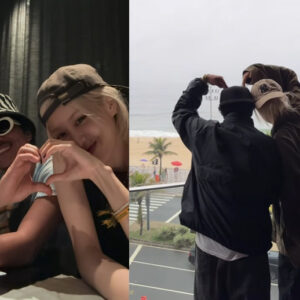In a stunning turn of events that has sent shockwaves through the entertainment industry, actor and musician Jack Black reportedly lost nearly $15 million in concert tours after shifting his public persona to embrace a more “woke” narrative. Known for his exuberant personality and commitment to entertaining audiences, Black has carved a unique niche for himself in film and music, with a fan base that spans generations. However, his recent pivot towards socially conscious themes seems to have alienated a significant portion of his audience, leading to a dramatic decline in ticket sales and concert attendance that no one could have anticipated.

Black’s decision to adopt a more politically aware approach coincided with a broader trend in the entertainment landscape where many artists and public figures have felt compelled to align their work with social justice issues. While this movement is often rooted in authenticity and a genuine desire to address pressing societal problems, it has sparked a backlash among segments of the audience who feel that the entertainment industry has become overly politicized. For Black, a performer who thrived on slapstick humor and relatable antics, this shift appears to have contradicted the very essence of what endeared him to his fans in the first place.
The culmination of this shift became evident during his most recent concert tour, where ticket sales plummeted, prompting financial repercussions that have raised eyebrows across the board. Venues that traditionally buzzed with excitement saw a stark decrease in attendees, leading to numerous shows being canceled or rescheduled in light of diminished interest. Industry insiders began speculating that Black’s foray into “woke” territory had made his content less relatable, jarring fans who were used to his escapist brand of humor. The irony of Black’s situation cannot be overlooked; an artist known for engaging audiences through laughter now found himself mired in a financial struggle, facing the consequences of his public stance on critical issues.

Critics of Black have pointed out that his attempts to address societal themes—such as environmental concerns and social equality—have often felt forced and disingenuous. Commentators have noted that his comedic style, which traditionally thrived on whimsical exaggeration and carefree fun, did not translate well into a platform for earnest discourse. In many ways, fans who flocked to his concerts sought an escape from the complexities of everyday life, not a reinforcement of them. This mismatch between expectation and delivery left many feeling disoriented, leading to disenchantment with the kind of performances Black was offering.
On the other hand, supporters of his new approach argue that artists have a responsibility to use their platforms to address societal issues and foster meaningful conversations. They contend that Black’s shift embodies a necessary evolution in the entertainment industry—a move that reflects growing awareness of pressing global concerns. Yet, for Black, the unintended consequence of that evolution has been a significant financial setback, forcing him to reconsider his approach and the themes he chooses to embrace in future projects.

Revisiting his previous body of work, it becomes clear that Black’s humor often stemmed from an everyman quality, which resonated with audiences across diverse backgrounds. His films, such as “School of Rock” and “Nacho Libre,” celebrated the joy of being authentic and unapologetically oneself. However, in an era where the push for social responsibility often overshadows personal narratives, Black’s transformation may have derailed his ability to connect with audiences who appreciated him for that very relatability.
As Jack Black navigates this tumultuous phase in his career, it remains to be seen how he will reconcile his desire to engage with critical issues alongside the financial realities of the entertainment business. Furthermore, his experience serves as a cautionary tale for other artists considering similar shifts in branding, emphasizing the delicate balance between advocacy and audience engagement. Many in the industry will be watching closely to observe how Black’s journey unfolds—whether he will lean back into the humor that first endeared him to millions or strive to carve a continuous path that merges art with activism.
In conclusion, the nearly $15 million loss Jack Black faced following his embrace of a “woke” image underscores the intricate dance between art, audience expectations, and societal advocacy. The fallout from this situation invites crucial discussions about the role of entertainers in contemporary society and the potential ramifications of aligning one’s art with evolving social values. As Black ponders his next steps, he may have to consider what it means to be authentic not just as an artist but also in the eyes of supporters who have cherished his wit and whimsy for so long. The future of Jack Black’s career hangs in the balance, and perhaps this experience will serve as a moment of reflection, redefining the interplay between entertainment and social commentary in an ever-changing landscape.





